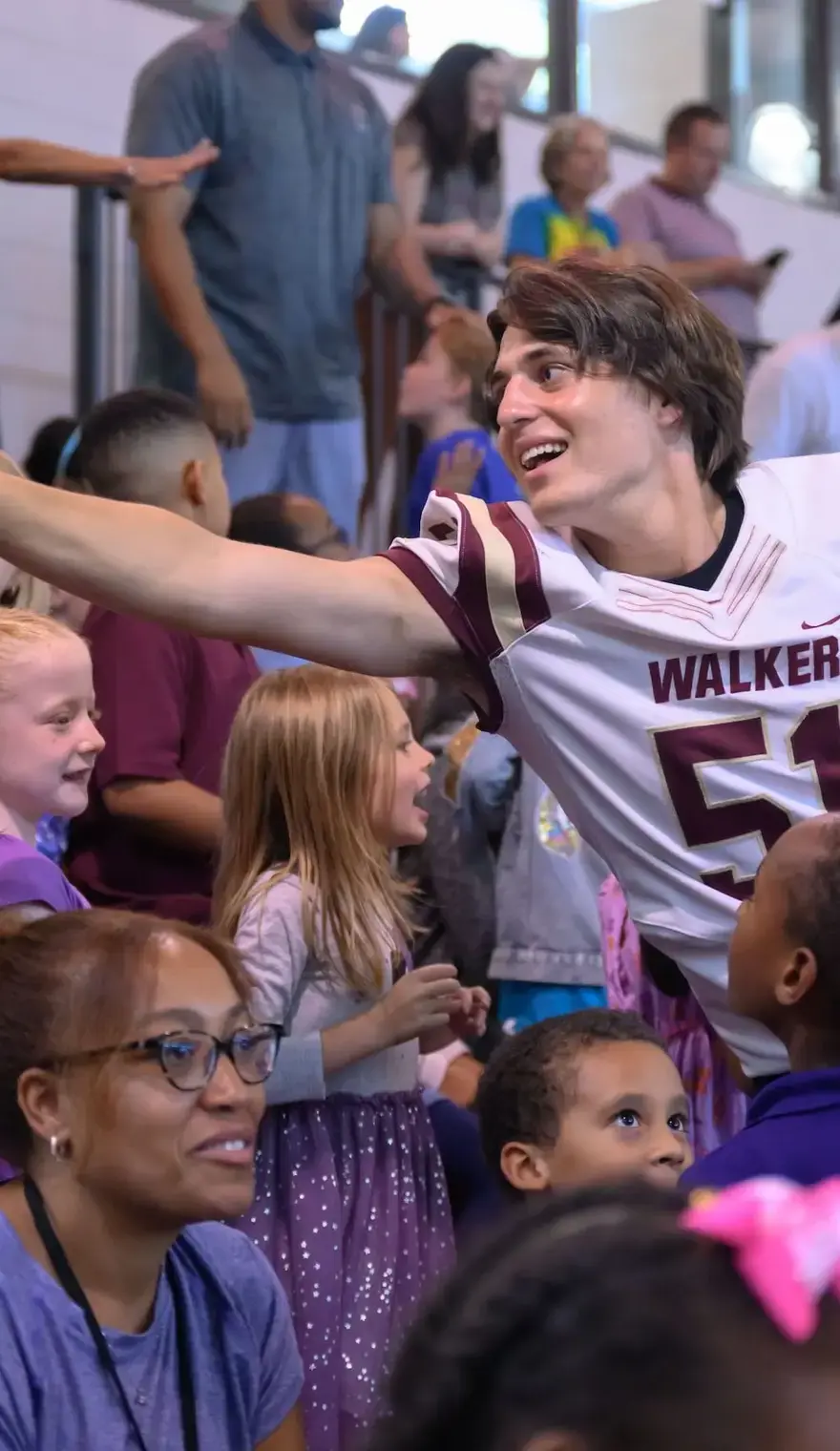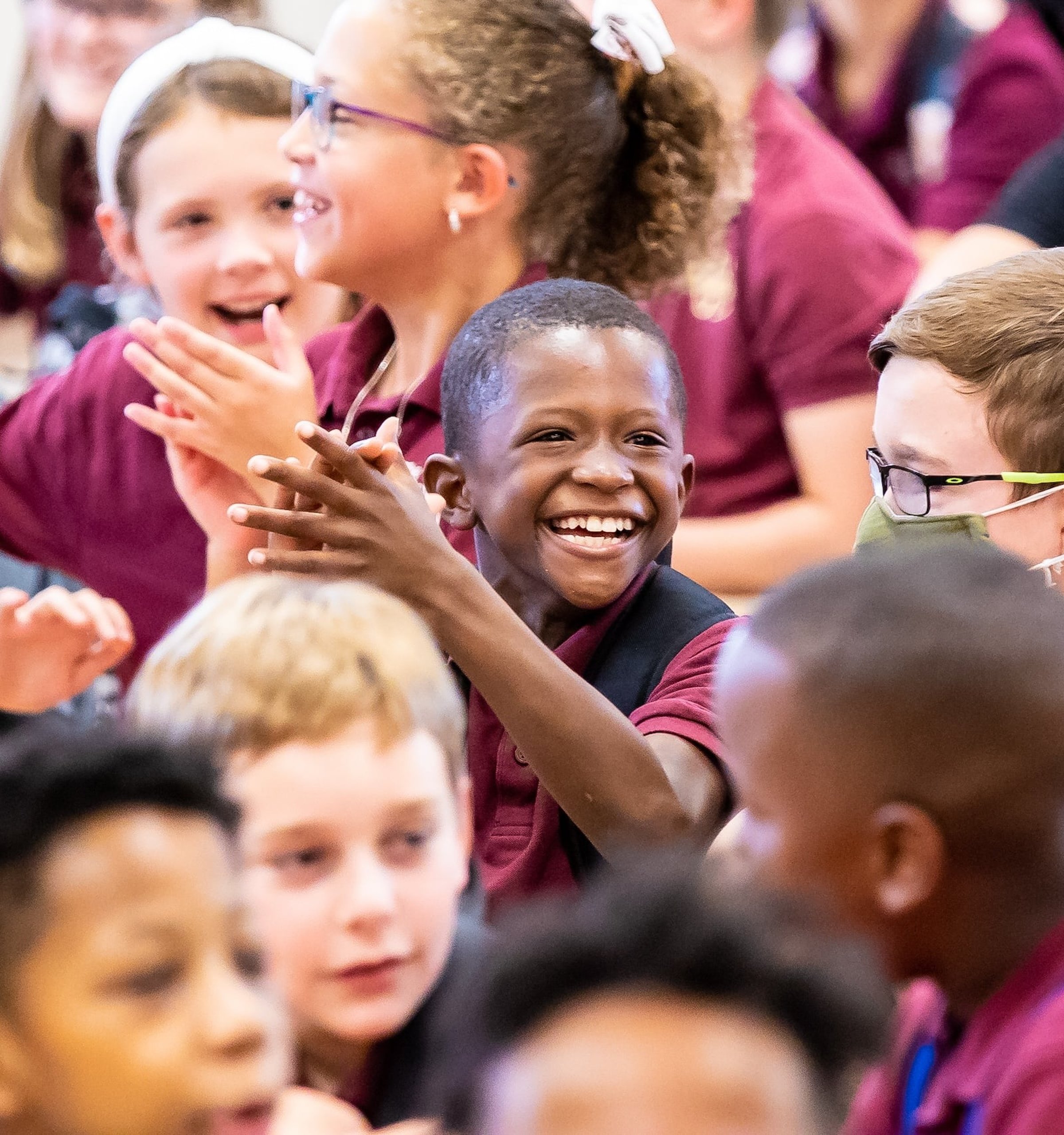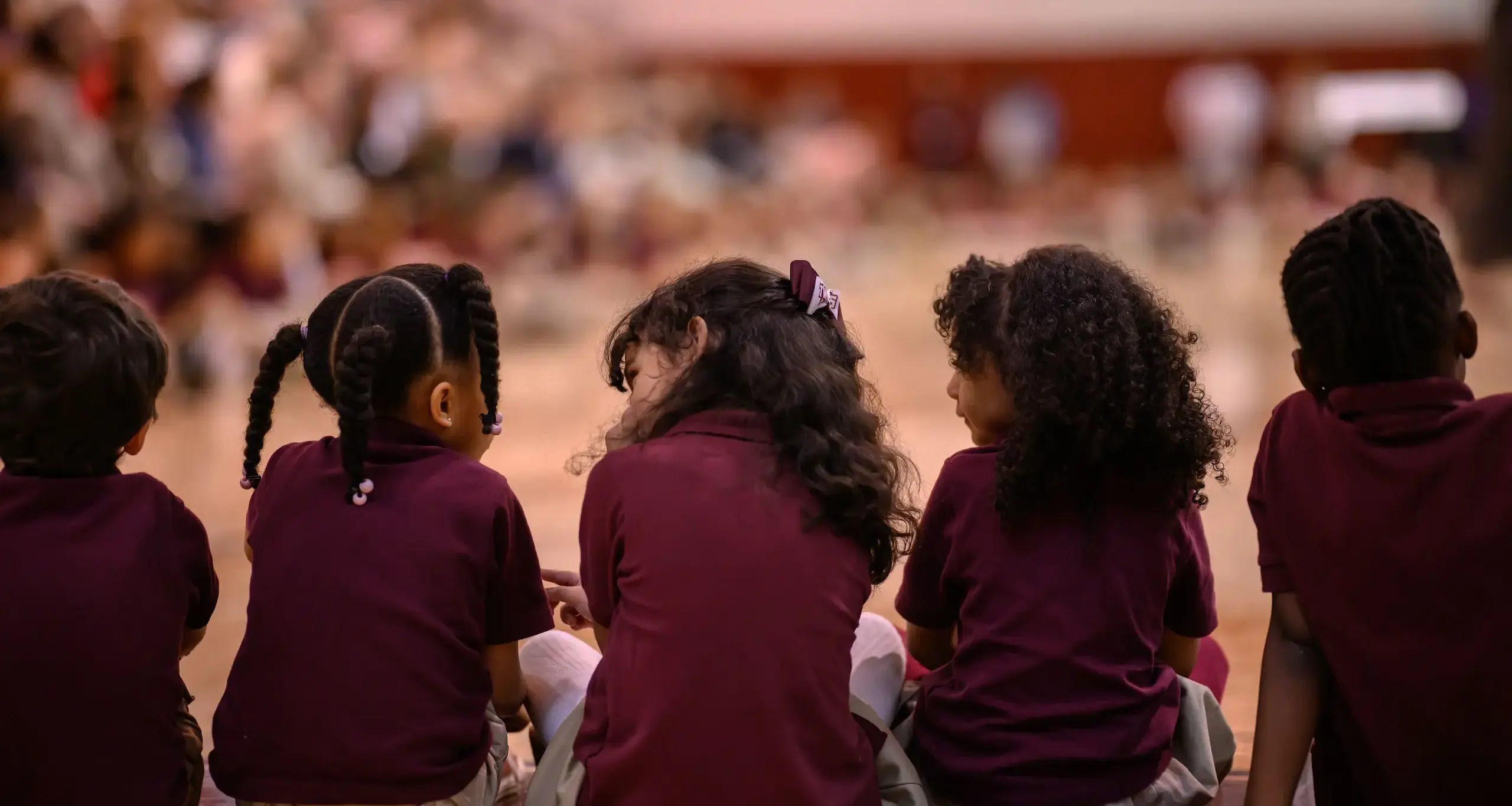In Primary and Lower School, reading and language are differentiated for each child’s needs and focuses on best practices in early literacy. In the Middle and Upper School, the curriculum builds upon that foundation, fosters a love of literature and prepares students for the rigors of college level reading and writing.
PRIMARY SCHOOL
Our language curriculum is differentiated for each child’s needs and focuses on best practices in early literacy. Students are introduced to the alphabet and are involved in multi-sensory and interactive daily phonics instruction. Students engage with stories read aloud across genres, which fosters a love of books, introduces rich vocabulary, and provides thought-provoking discussions. Our literacy curriculum includes Orton Gillingham, Heggerty, Handwriting Without Tears, Zoo Phonics, and Fundations, and student progress is closely monitored.
As reading skills begin to emerge, instruction is customized through leveled readers to support each child’s growth. Students use decoding and encoding strategies to develop both reading and writing skills. Across all grade levels, students are encouraged to share their thoughts in written form. In early learners and kindergarten, students begin with drawing and dictating their thoughts to teachers. Students write their own sentences and short stories with increased command of conventions such as capitalization and punctuation. Students are empowered to share their ideas as authors.

LOWER SCHOOL
Reading
In the Lower School, reading instruction is customized to target students’ strengths and needs in a developmentally appropriate manner. In the early grades, explicit Orton-Gillingham multi-sensory phonics instruction builds a solid foundation for students in the areas of phonemic awareness, spelling patterns, and decoding. Throughout the lower school, a variety of texts are used to develop a love of reading, teach comprehension skills, and increase vocabulary. The learning process continues by targeting specific skills and standards as students interact with texts. Students are actively thinking, making connections, and responding to texts in meaningful ways. Fourth and fifth-grade students continue to build comprehension, fluency, and vocabulary through novel studies. The “40 Book Challenge” is an activity designed specifically for our fourth and fifth graders to provide an additional aspect to the development of independent reading across a variety of genres.
Writing
Lower School students begin to write with a sense of purpose, using age-appropriate grammar and spelling. By using the writing process, students express ideas, feelings, and information clearly. Students learn to write fiction, nonfiction, and poetry at an increasing level of expertise.
MIDDLE SCHOOL
The Middle School English curriculum builds on the foundations established in the Lower School and prepares students for the expectations of the Upper School. The Middle School English department fosters a strong sense of self and community through the analysis of literature and an appreciation of the writer’s craft in a variety of genres with increasing complexity. Students communicate clear ideas supported by textual evidence in both speech and writing.
Throughout their time in grades six through eight, our students understand the structure of and learn to compose organized, well-developed paragraphs and essays. In developing these skills, students communicate ideas effectively for a variety of purposes. As they sharpen their point of view through written expression, they begin to discover their voice.
Students gain an understanding that grammar is the foundation of clear written and oral communication. The study of grammatical concepts is reinforced throughout 6th, 7th, and 8th grade and becomes integral to their writing practice. Along with grammar, students work through an independent vocabulary study, which enhances their reading comprehension and sharpens their writing.
UPPER SCHOOL
The English curriculum fosters a love of literature and prepares students for the rigors of college-level reading and writing. The program introduces them to the best of classic and contemporary literary works and diverse voices across fiction, nonfiction, and poetry and uses the analysis of literature and the study of language to develop critical thinking and writing skills.
We study literature as a powerful way to understand and empathize with others and better understand ourselves. Students take responsibility for developing critical thinking and analytical questions about texts and leading robust classroom discussion, while teachers guide students in their development of oral and written communication skills. Students at all levels write in a variety of genres, including personal narratives, analytical arguments, and creative pieces of poetry and prose. By dedicating time each class to reading books of their choice, we encourage students to be readers for life.


_729.webp?version=638593760322770000)

